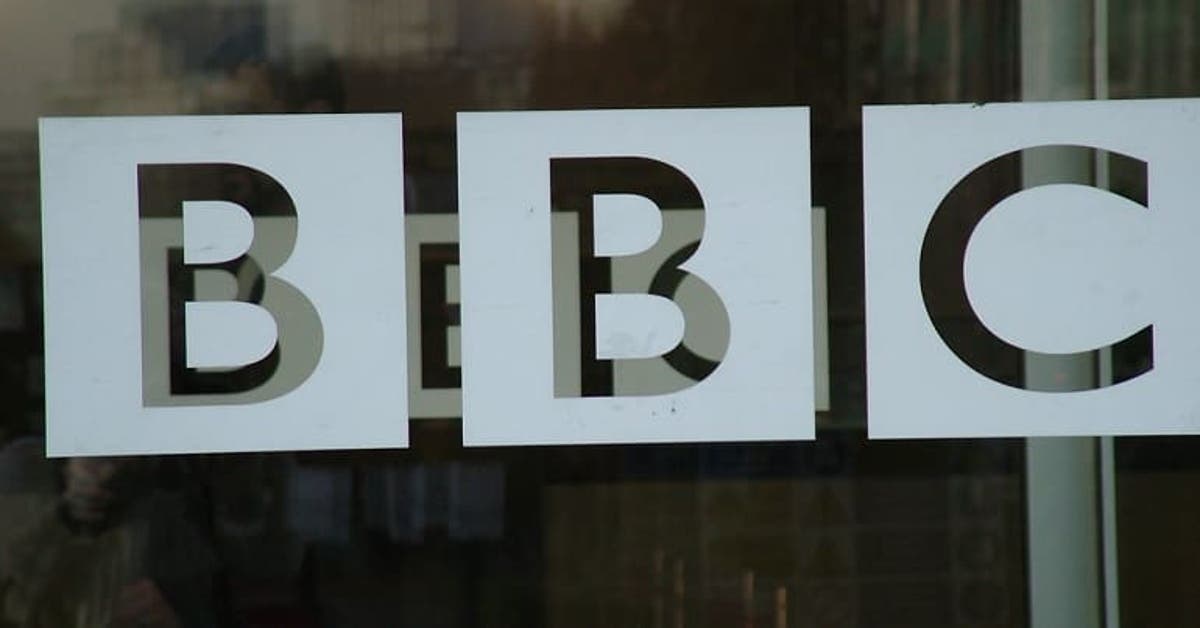Alsof de
BBC links is en onafhankelijk bericht, zo zou je de nieuwe stap van
opperploert Boris Johnson kunnen zien: de BBC moet afslanken en wordt
in feite gedwongen om op een andere manier aan geld te komen dan de
'kijk- en luistergelden' die men nu in Groot-Brittannië moet
betalen.
Het is
duidelijk dat e.e.a. is ingegeven door het verzet van de BBC tegen de
Brexit, iets dat Johnson blijkbaar flink heeft gestoken en zoals het
psychopathische kleuterpolitici als hemzelf en Trump betaamt: wraak
nemen op degenen die het tegen hen heeft durven opnemen.......
In feite
een nogal domme zet van Johnson, daar de BBC is verworden tot een
rechtse omroep die volkomen afhankelijk zowel de neoliberale status quo, als
de illegale oorlogen steunt die de VS onderneemt, waarbij
Groot-Brittannië deze oorlogen (grootschalige terreur) meestal van meet af aan politiek steunt en
waaraan het land bovendien deelneemt...... Kortom de BBC brengt vooral nieuws en actualiteiten in het belang van Johnson en de
rest van de zogenaamde Conservatieve Partij (een inhumaan neoliberaal
grofgraai zootje)
Maar aan
deze zaak zitten meerdere kanten, immers als de BBC de commercie moet
binnenhalen, zal het ook op die manier rekening moeten houden met de
grote reclame kopers en bedrijven die programma's helpen aan
financiering. Bedrijven die belang hebben bij het behoud van de
neoliberale 'waarden' en bij het voeren van oorlog...... Wat betreft oorlog, daarin hebben een groot aantal bedrijven een belang: als eerste de
wapenindustrie in de ruimste zin van het woord, dus inclusief de
fabricage van rollend, varend en vliegend oorlogstuig. Dan zijn er nog de
oliemaatschappijen, immers door oorlog stijgt de behoefte aan brandstoffen........
Daarnaast zijn er nog te toeleveranciers van de voornoemde takken van industrie, maar zijn er nog meer
bedrijven te bedenken die belang hebben bij oorlog, zoals aannemers
die de in elkaar geschoten boel moeten herbouwen of herstellen,
deze bedrijven moeten dan vaak weer een beroep doen op de financiële
wereld voor investeringen........ Kijk en daarbij hebben banken e.d. weer een groot belang...... Daarover gesproken, de
financiële wereld: uiteraard hebben ook een enorm aantal (groot-) aandeelhouders belang bij oorlog, zoals ze ook 'belang hebben bij het verkankeren' van ons aller aarde (en bij zo min mogelijk personeel in bedrijven....)....
De
meeste westerse mediaorganen klagen ach en wee over het voorstel van
Johnson t.a.v. de BBC, alsof de BBC niet al lang afhankelijk is van
de Britse regering en een gigantisch aantal fake news (nepnieuws) berichten heeft gebracht waarmee het publiek werd en wordt
belazerd en/of gemanipuleerd, neem alleen al de berichtgeving over de illegale
oorlogen van de VS, die zoals gezegd keer op keer door de Britten zowel politiek
els militair worden gesteund......
Eén ding is zeker: de Britten hebben het verlies van (socialist) Jeremy Corbyn één op één te danken aan de BBC, die al een paar jaar lang bij voortduring negatieve artikelen/berichten over hem heeft gepubliceerd/uitgezonden en dat voor 99,9% gebaseerd op leugens en andere desinformatie, zoals de smerige leugen dat Corbyn een antisemiet zou zijn......
Het volgende bericht komt van The Canary en werd geschreven door Ed Sykes, hij gaat verder in op de verrechtsing van de BBC (ten tijde van publicatie was nog niet bekend dat de BBC moet verzelfstandigen en fiks moet afslanken):
Veteran
reporter shows exactly why the BBC is so close to imploding

John Simpson has been
with the BBC
for around 53 years.
And one comment from him helps us to see why the BBC
is facing potential destruction.
People
now see through the BBC‘s
subtle bias
The BBC‘s
anti-left bias
has gone into overdrive in recent years. Sometimes it’s right in
your face. Sometimes it’s more subtle.
But it’s there. And now, there may
be an even greater shift to the right at the public broadcaster
with the replacement of its director-general. This potential
right-wing coup would come at a time of intensifying criticism
and action from the left, and after analysis
has shown only
44% of Britons now trust BBC
News reporters
to tell the truth.
Simpson’s comment
helped to sum up the ‘pro-establishment’ mindset at the
organisation that has brought the BBC
to this point.
Speaking
about the impressive breakthrough
of the left in Ireland’s recent election, Simpson seemed to lament
the downfall of the right-wing establishment:
Apart from positively
calling the previous situation in the country “politically stable”
(despite a number of significant, ongoing crises), he suggested the
left was ‘populist’ and Ireland had “succumbed”
to it. Both of these words have negative connotations. The BBC
itself pointed out
previously that the word ‘populism’ is usually a “shorthand
political insult”.
The reality was that
Irish voters simply saw
housing and healthcare crises
and wanted
sufficient funding to deal with them.
BBC
vs moderate progressive change?
The BBC
may think that sitting on the fence is an impartial approach. But
it’s not. Because being consistently in
favour of the status quo is also a form of bias. And it has a
dangerous, limiting impact on British democracy.
Britain has suffered
from decades of right-wing ideological
dominance, which has created extreme
inequality. The share of national income that the UK’s ultra-rich
receive, for example, has increased
significantly since the 1980s. And today, people
in the top 1% are “disproportionately male, middle-aged and
London-based”.
Such extreme inequality is disastrous for numerous reasons.
But sadly, it’s become the norm.
Under Jeremy Corbyn,
the Labour Party promoted moderate centre-left
policies. One expert called
them “common-sense economics”. 163 economists, meanwhile,
proudly signed
an open letter in 2019 saying the “UK economy needs reform” and
that Labour “deserves to form the next government” because
it has “serious proposals for dealing with” Britain’s “deep
problems”.
The BBC,
however, played a prominent
role
in 2019’s brutal
propaganda offensive from the establishment media which helped to
sink Corbyn’s party and propel the most hard-right
government in decades into power.
Britain’s
age gap
The 2019 general
election yet again highlighted the generational divide in Britain.
Voters over the age of 39 were more likely to vote Tory, and a
massive
67% of over-70s opted for Boris Johnson’s Conservatives.
Britain has now lived
through four
decades of Thatcherism and Thatcherism-lite. And while younger
people feel the worst effects of this, older generations benefited
from free
higher education and greater economic equality.
Older generations also
had a much better chance of owning their own homes. They didn’t
feel the brunt of the collapse
of social housing and the worsening housing crisis. In 2016, for
example, home ownership in England was at its lowest
level in 30 years – as house prices soared while wage growth
was weak and new housing was scarce. As the Bank of England has
revealed:
Real house
prices in the UK have almost quadrupled over the past 40 years,
substantially outpacing real income growth.
Today, people over 65
own around
half of the UK’s housing wealth.
It’s hard to believe
the BBC
represents all Britons when it implicitly favours this status quo.
GE2019:
the liberal establishment sank Labour just as much as the Tory Brexit
message
Britain’s electoral
system is terrible
and undemocratic. And Labour has for too long failed to forge an
alliance of non-Tories in favour of electoral reform – which could
see a ‘progressive majority’ in Britain. Only now do Labour
members seem to be waking
up to this.
Parties entered the
2019 election under the current electoral system, however. And this
favoured the Tories, leaving their opponents on the back foot. As
University of East London professor Jeremy Gilbert has written,
many centrists preferred not to back Corbyn’s Labour – allowing
the united right a landslide victory. Centrist politicians lost
in 2019. But many centrist
voters “could not be persuaded to accept a compromise on Brexit
in order to prevent a Johnson landslide”. The constant media
propaganda against Corbyn and his party didn’t help, either. In the
end, opposing the hard-right Tory agenda simply wasn’t important
enough to the extreme
centre.
Labour’s economic
policies
were very
popular across Britain. But in an election where Brexit
dominated, Labour’s compromise policy was a mistake. And a
mixture of our putrid electoral system and elitist media
establishment sealed
the deal.
The BBC
cannot escape responsibility for the 2019 result. Impartiality is a
noble goal; but the BBC
failed miserably on that measure. An objective, public-owned media,
where the facts do all the talking, is massively important for a
democracy to succeed. That’s not the BBC
today,
though. And John Simpson’s latest comment is a perfect example of
how the broadcaster is currently stuck in a destructive,
pro-establishment quagmire. Without urgent change, the BBC
won’t survive much longer.
Featured image via
Flickr –
Miss Rogue
==================================
Voor meer berichten over de BBC, klik op het label met die afkorting, direct onder dit bericht.





